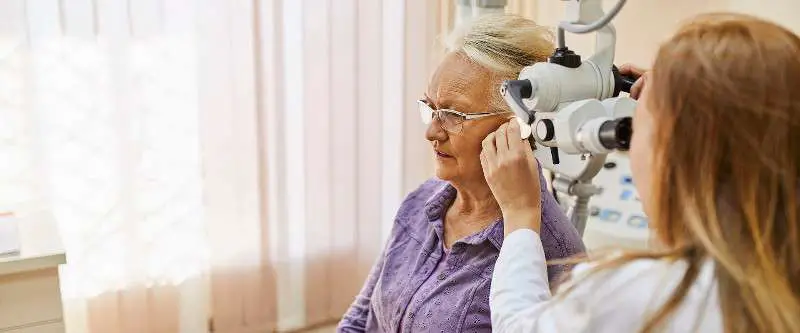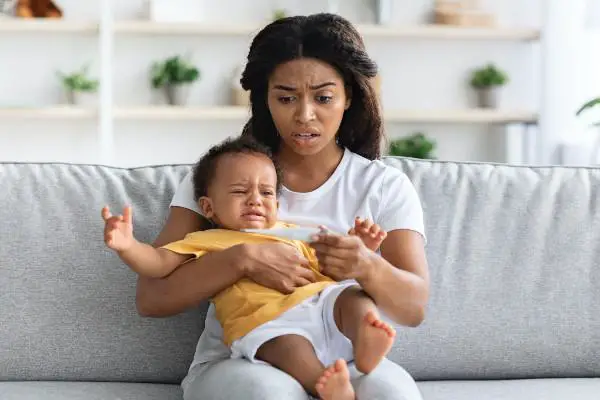Introduction
Navigating through the complexities of medical science, especially when it pertains to our intricate auditory system, can often feel like a labyrinth. With myriad potential complications and causative factors, the connection between meningitis and hearing loss is one such area that holds significant intrigue and importance. This blog post seeks to shed light on this often-understudied area of medicine, diving deep into the causes and risk factors associated with meningitis-related hearing loss, with the hope to empower individuals with knowledge and practical measures to prevent this devastating outcome.
Meningitis, an inflammation of the protective membranes covering the brain and spinal cord, is known to lead to a plethora of complications if left untreated. One such complication is hearing loss, which can profoundly impact the quality of life of those affected. Unraveling the complex interplay between meningitis and hearing loss requires us to delve into a variety of aspects – the nature of the disease, the mechanism of damage to the auditory system, genetic predisposition, and of course, preventive measures to mitigate the risk.
In this comprehensive exploration, we shall dive into each of these aspects, providing practical insights, backed by the latest research, all woven into an accessible format suitable for healthcare professionals, patients, caregivers, and anyone interested in understanding the intricacies of meningitis and hearing loss.
Understanding the Connection: Meningitis and Hearing Loss
The link between meningitis and hearing loss traces back to the nature of the disease itself. Meningitis, specifically bacterial meningitis, can damage the cochlea, the part of the inner ear responsible for converting sound vibrations into electrical signals. When the bacteria invade the cerebrospinal fluid (CSF), they can travel to the cochlea, causing inflammation and cellular damage [1]. Over time, this damage can lead to hearing loss.
It’s crucial to note that hearing loss due to meningitis is often a medical emergency. Left untreated, it can progress to profound deafness. But with early detection and appropriate medical intervention, it’s possible to limit the extent of hearing loss or even restore some degree of hearing [2].
Professional Re-Chargeable Hearing Aid
Experience Exceptional Sound Quality with Vivtone RIC02, a professional RIC hearing aid featuring a receiver in the canal design. Enjoy superior sound fidelity, reduced distortion, and minimal feedback. With a remarkable 51dB peak sound gain, it surpasses many other devices, catering to a wide range of hearing loss levels.
State-of-the-Art Technology awaits you with Vivtone RIC02. Designed with US-made components from renowned brands like Intricon and Knowles, this advanced device offers exceptional quality at a fraction of the cost. The built-in 30mAh steel-sealed lithium polymer battery charges rapidly in just 1.5 hours and provides an impressive battery life of over 20 hours.
Reliability and Water Resistance come hand in hand with the Vivtone RIC02. Secure your device with the included lanyard and clip, preventing accidental loss. With an IP65 rating, these hearing aids are resistant to water, sweat, and raindrops, assuring longevity and durability. Give the perfect gift to your seniors and loved ones, as this device combines functionality with an appealing appearance and packaging.
Viral and Bacterial Meningitis: Different Causes, Same Hearing Loss
Meningitis can be classified into two primary types: bacterial and viral, both of which can potentially lead to hearing loss, albeit through slightly different mechanisms. Bacterial meningitis, caused by bacteria such as Streptococcus pneumoniae and Neisseria meningitidis, can lead to hearing loss by directly invading and damaging the cochlea, as previously explained [3].
On the other hand, viral meningitis, caused by viruses like Enteroviruses or Herpes Simplex virus, typically results in a less severe disease course. However, these viruses can also cause hearing loss, mainly through the inflammatory response they trigger in the body. While not as common as with bacterial meningitis, hearing loss from viral meningitis still represents a significant concern and necessitates follow-up audiological evaluations for patients who’ve suffered from the disease [4].
How Meningitis Damages the Auditory System
Understanding how meningitis damages the auditory system requires a closer look at the intricate mechanisms involved. When the bacteria or viruses responsible for meningitis invade the central nervous system, they trigger an immune response, leading to inflammation. This inflammatory response can directly damage the delicate structures of the inner ear, including the cochlea and the auditory nerve.
During the acute phase of meningitis, the inflammatory process can disrupt the blood supply to the cochlea, leading to reduced oxygen and nutrient delivery. This can result in cellular damage and impaired functioning of the auditory system [5]. The inflammation can also cause the release of harmful substances, such as cytokines and free radicals, which further contribute to tissue damage and hearing loss [6].
The damage caused by meningitis can be particularly devastating in young children, as their auditory system is still developing. The inflammation and associated cellular damage can disrupt the maturation process of the auditory system, leading to long-lasting hearing impairment [7].
Genetic Predisposition to Meningitis-Related Hearing Loss
While meningitis can affect anyone, certain genetic factors can influence an individual’s susceptibility to the disease and the subsequent risk of hearing loss. For example, variations in genes involved in the immune response can impact an individual’s ability to fight off bacterial or viral infections, including those that cause meningitis. Genetic polymorphisms in genes coding for toll-like receptors and other immune system components have been associated with an increased risk of meningitis and its complications, including hearing loss [8].
Furthermore, certain genetic conditions, such as those affecting the structure or function of the auditory system, can increase the vulnerability to hearing loss following meningitis. For instance, mutations in genes involved in the development and maintenance of the cochlea or auditory nerve can make individuals more susceptible to the damaging effects of meningitis on their hearing [9].
While genetic predisposition plays a role in meningitis-related hearing loss, it’s essential to remember that the disease is multifactorial, influenced by both genetic and environmental factors. Understanding these genetic factors can aid in identifying individuals at higher risk and implementing appropriate preventive strategies.
Preventive Measures: Reducing the Risk of Hearing Loss from Meningitis
Preventing meningitis-related hearing loss is of utmost importance, considering its potential impact on individuals’ quality of life. Fortunately, several preventive measures can significantly reduce the risk of hearing loss associated with meningitis.
Vaccination: Vaccination is a crucial preventive strategy against meningitis. Vaccines against bacterial meningitis, such as Haemophilus influenzae type b (Hib) and pneumococcal conjugate vaccines, have been highly effective in reducing the incidence of meningitis and its complications, including hearing loss [10]. Ensuring that individuals receive the recommended immunizations according to their age and risk factors can play a vital role in preventing meningitis-related hearing loss.
Promoting Hygiene and Sanitation: Meningitis can spread through respiratory droplets, close contact, or contaminated food and water. Promoting good hygiene practices, such as regular handwashing, covering the mouth and nose when coughing or sneezing, and avoiding sharing utensils, can help reduce the risk of meningitis transmission [11]. Additionally, improving sanitation facilities and access to clean drinking water can contribute to preventing the spread of the disease in communities.
Early Detection and Treatment: Timely diagnosis and appropriate treatment of meningitis are essential in preventing complications, including hearing loss. Prompt recognition of meningitis symptoms, such as high fever, severe headache, stiff neck, and altered mental status, can facilitate early medical intervention [12]. Early initiation of appropriate antibiotics or antiviral medications can help control the infection and minimize its potential impact on hearing.
Education and Awareness: Raising awareness about meningitis, its signs and symptoms, and the importance of preventive measures can empower individuals, families, and communities. Education campaigns targeted at both the general public and healthcare professionals can contribute to early detection, timely treatment, and improved prevention strategies.
By implementing these preventive measures, we can work towards reducing the incidence of meningitis-related hearing loss and its associated burden on individuals and society.
FAQ – Hearing Loss: what you need to know
Historical Impact of Meningitis-Related Hearing Loss
Throughout history, meningitis-related hearing loss has had a significant impact on individuals and communities. In the early 20th century, before the advent of vaccines, epidemics of meningitis caused widespread hearing loss among children. The introduction of the Hib vaccine in the 1980s and the pneumococcal conjugate vaccine in the 2000s has since led to a significant decline in the incidence of meningitis and its associated complications, including hearing loss [13]. However, it is important to recognize the historical context in which communities dealt with the devastating consequences of meningitis-related hearing loss, inspiring the development of preventive strategies we have today.
Famous Personalities Affected by Hearing Loss due to Meningitis
Even among famous personalities, there are individuals who have experienced hearing loss as a result of meningitis. One such example is Helen Keller, an iconic figure who overcame deaf-blindness and became an influential advocate for people with disabilities. Helen Keller contracted meningitis at the age of 19 months, which resulted in the loss of her sight and hearing. Through her remarkable journey of learning and communication, Helen Keller became an inspiration to millions, highlighting the resilience and potential of individuals living with hearing loss [14].
Another notable figure is William Frederick “Buffalo Bill” Cody, a legendary American showman and Wild West performer. Buffalo Bill contracted meningitis in his early twenties, resulting in partial hearing loss. Despite his hearing impairment, he continued his successful career and became a cultural icon, demonstrating that hearing loss does not limit one’s ability to achieve greatness [15].
These famous personalities serve as reminders that hearing loss from meningitis does not define an individual’s potential. Instead, it can be an opportunity for resilience, determination, and triumph.
By understanding the historical impact and the stories of famous personalities affected by meningitis-related hearing loss, we gain a deeper appreciation for the challenges faced and the remarkable achievements of those living with this condition.
Conclusion
The connection between meningitis and hearing loss is multifaceted, involving complex mechanisms, genetic predispositions, and various preventive measures. Understanding the causes and risks associated with meningitis-related hearing loss empowers us to take proactive steps in its prevention and management. Through vaccination, promoting hygiene, early detection, and treatment, and raising awareness, we can strive to minimize the impact of meningitis on hearing health.
As researchers, healthcare professionals, and individuals concerned about the well-being of ourselves and our loved ones, let us continue to explore the intricate nature of meningitis and hearing loss, employing our knowledge to advance preventive strategies and support those affected. By working together, we can make significant strides in protecting hearing and improving the lives of individuals impacted by meningitis.
Identifying Pulsatile Tinnitus: Key Symptoms and Early Detection
Discover the essential aspects of identifying and diagnosing pulsatile tinnitus, from recognizing its unique symptoms to understanding its causes

Mixed Hearing Loss: Understanding the Causes, Symptoms, and Treatment Options?
In this blog post, we will delve into the world of mixed hearing loss, exploring its causes, symptoms, and available treatment options. If you or






